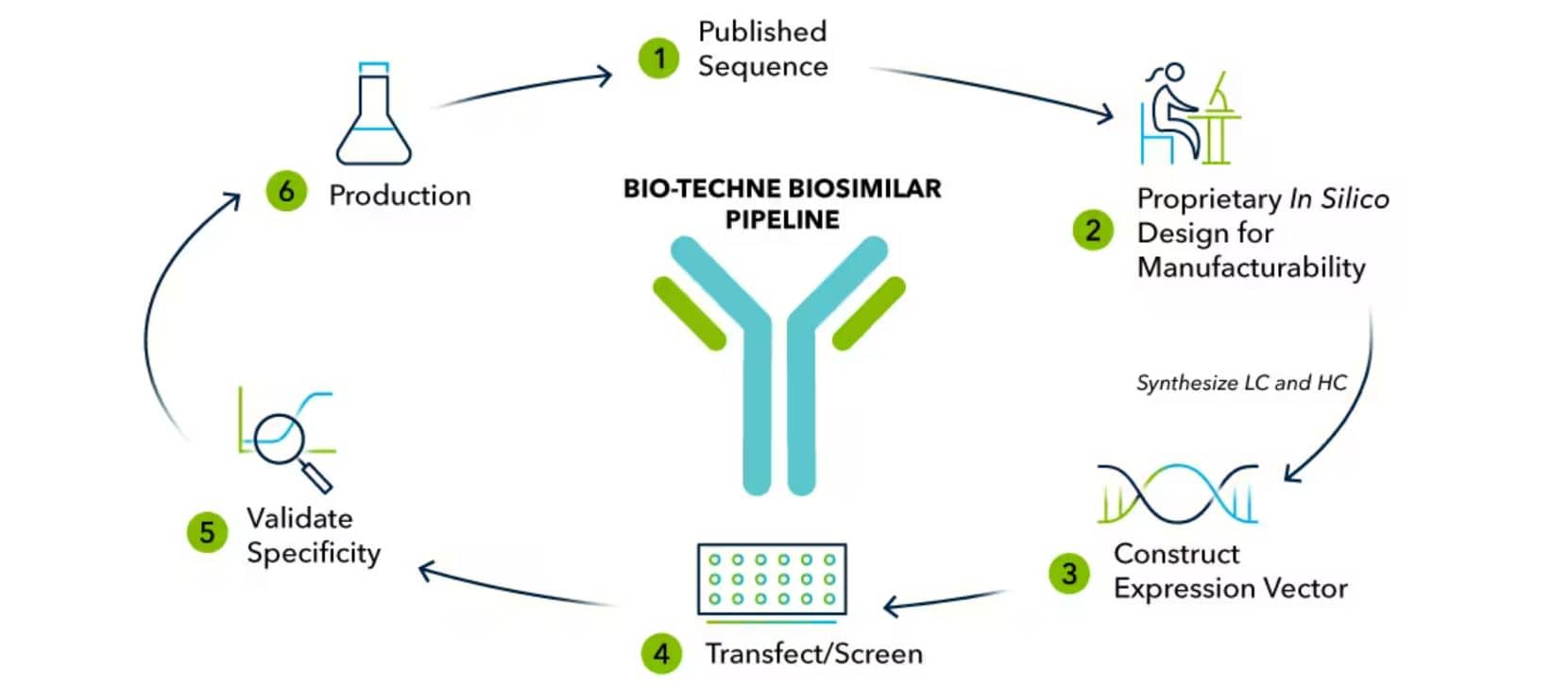Human EPCR Biotinylated Antibody Summary
Ser18-Ser210
Accession # Q9UNN8
Customers also Viewed
Applications
Please Note: Optimal dilutions should be determined by each laboratory for each application. General Protocols are available in the Technical Information section on our website.
Scientific Data
 View Larger
View Larger
EPCR in Human Liver. EPCR was detected in immersion fixed paraffin-embedded sections of human liver array using Goat Anti-Human EPCR Biotinylated Antigen Affinity-purified Polyclonal Antibody (Catalog # BAF2245) at 15 µg/mL overnight at 4 °C. Tissue was stained using the Anti-Goat HRP-DAB Cell & Tissue Staining Kit (brown; Catalog # CTS008) and counterstained with hematoxylin (blue). Lower panel shows a lack of labeling if primary antibodies are omitted and tissue is stained only with secondary antibody followed by incubation with detection reagents. View our protocol for Chromogenic IHC Staining of Paraffin-embedded Tissue Sections.
Preparation and Storage
- 12 months from date of receipt, -20 to -70 °C as supplied.
- 1 month, 2 to 8 °C under sterile conditions after reconstitution.
- 6 months, -20 to -70 °C under sterile conditions after reconstitution.
Background: EPCR
Protein C is a vitamin K-dependent serine protease that plays a major role in blood coagulation. Binding of Protein C to EPCR leads to the proteolytic activation of PAR1 (protease-activated receptor 1) on endothelial cells and subsequent up-regulation of Protein C-induced genes. EPCR is a type I transmembrane glycoprotein in the CD1/MHC family. It is expressed most strongly in the endothelial cells of arteries and veins in heart and lung. Membrane bound EPCR is released by metalloproteolytic cleavage to generate the soluble receptor. The extracellular domain of human and mouse EPCR shares approximately 61% amino acid sequence homology.
Product Datasheets
Citations for Human EPCR Biotinylated Antibody
R&D Systems personnel manually curate a database that contains references using R&D Systems products. The data collected includes not only links to publications in PubMed, but also provides information about sample types, species, and experimental conditions.
2
Citations: Showing 1 - 2
Filter your results:
Filter by:
-
Protein C receptor is a therapeutic stem cell target in a distinct group of breast cancers
Authors: D Wang, X Hu, C Liu, Y Jia, Y Bai, C Cai, J Wang, L Bai, R Yang, C Lin, YR Liu, S Li, F Qiao, L Yao, L Chen, G Ge, H Jiang, D Li, L Li, J Chen, ZM Shao, YA Zeng
Cell Res., 2019-09-03;0(0):.
Species: Human
Sample Types: Protein
Applications: ELISA Detection -
Comprehensive analysis of conditioned media from ovarian cancer cell lines identifies novel candidate markers of epithelial ovarian cancer.
Authors: Gunawardana CG, Kuk C, Smith CR
J. Proteome Res., 2009-10-01;8(10):4705-13.
Species: Human
Sample Types: Cell Culture Supernates
Applications: ELISA Development
FAQs
No product specific FAQs exist for this product, however you may
View all Antibody FAQsIsotype Controls
Reconstitution Buffers
Staining Reagents
Supplemental Cell Selection Products
Supplemental ELISA Products
Reviews for Human EPCR Biotinylated Antibody
There are currently no reviews for this product. Be the first to review Human EPCR Biotinylated Antibody and earn rewards!
Have you used Human EPCR Biotinylated Antibody?
Submit a review and receive an Amazon gift card.
$25/€18/£15/$25CAN/¥75 Yuan/¥2500 Yen for a review with an image
$10/€7/£6/$10 CAD/¥70 Yuan/¥1110 Yen for a review without an image






